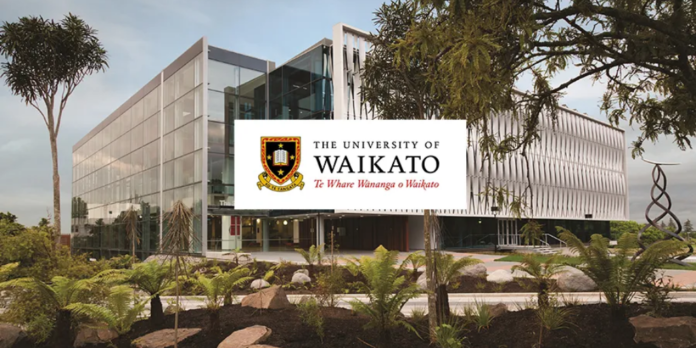Specific claims not supported, but the need for transformational change clearly articulated
The reviewers commissioned to assess public claims of racism at the University of Waikato have presented their final report to the University Council.
Sir Harawira Gardiner and Hon Hekia Parata had full access to all University files relevant to the issues raised, held individual and group meetings with 80 people and received 96 submissions. The report is being released in full by the University today.
The Parata Gardiner report finds that specific claims against the University made in the Protected Disclosure to the Secretary for Education dated 29 May 2020, and provided to the media by its signatories, are “incorrect, inaccurate, or reflect differing perspectives or opinions”. On the basis of these findings and their own investigation of evidence relating to the claims made in the public domain, the University Council expressed its full confidence in the Vice-Chancellor and management of the University.
However, the report finds that because New Zealand’s public institutions, including universities, are founded in our settlement history and adhere to western university traditions and cultures, there is a case for structural, systemic, and casual discrimination at the University of Waikato.
The report says that “a number of positive initiatives have been taken by University leadership as part of a Te Ao Māori commitment” but that “the good intent of individuals and groups are insufficient to redress this situation”. The reviewers note that their report should be the start of a process of ongoing engagement with “urgent and serious action, in pursuit of not just improvement, but transformation.”
In unanimously agreeing to the recommendations in the report, the University Council thanked the Reviewers for completing an extremely helpful report in a very short time frame. The Council has supported the recommendation for engagement in a future-focused process to determine how to apply Te Tiriti as the basis for a bicultural platform for the University, and for refreshed relationships with key iwi stakeholders. The full list of resolutions made by the University Council on the report can be found here.
The transformation process is to begin with the establishment of a taskforce that will develop a plan of action to address the issues raised, which will follow a consultative process with full resources to support its implementation. The taskforce will be co-chaired by Professor Linda Tuhiwai Smith and Senior Deputy Vice-Chancellor Professor Alister Jones.
Professor Tuhiwai Smith is an international leader and authority in Indigenous Studies and kaupapa Māori education. Professor Jones is an internationally recognised university leader with a deep understanding and experience of the University of Waikato.
The taskforce will operate over the next three months, with implementation projects to follow in 2021. The timeframe will also provide scope for ongoing consultation with the University community and external stakeholders.
University of Waikato Vice-Chancellor, Professor Neil Quigley, says:
“The findings of the report and the establishment of the taskforce present the University with an opportunity to consider how to address these structural and systemic issues of discrimination and racism.
“We genuinely embrace the opportunity for transformational change and to embed Mātauranga Māori more deeply in the University. We thank the many students, staff and stakeholders who have expressed concern and support for the University, and acknowledge the resilience that the University community has shown in the face of adversity.”






“….because New Zealand’s public institutions, including universities, are founded in our settlement history and adhere to western university traditions and cultures….”
Of course our universities adhere to Western traditions: they are a priori a Western concept. Which has stood the test of time.
The report claims the following:
“That these institutions therefore, are structurally, systemically, and casually
discriminatory”
To assert that, because unis are a Western concept, it follows that they are discriminatory, is an unjustifiable leap of logic, in my view.
“…there is a case for structural, systemic, and casual discrimination at the University of Waikato.”
I’m puzzled by this: I’m not sure what the authors mean.
“….these structural and systemic issues of discrimination and racism.”
What are these issues? Racism? That sounds implausible, given that this isn’t a racist society. Except, of course, for the Maori electoral system, which – on the definition of racism as being what governments do by way of laws and regulatory arrangements – is indisputably racist.
You need a report to point this out. Yawn.
So no actual evidence of racism, but the university is guilty of being “too white” – or something like that.
Something the above article fails to mention: https://www.stuff.co.nz/national/300116670/waikato-uni-racism-claims-incorrect-sparked-by-spending-probe–report
So if you’re under financial investigation, the best defence might be to cry “racism”.
Because of the damage done by Covid-19 to university budgets, all construction projects at Waikato University have been halted – all projects except for the new Pā, that is. So despite said university’s “structural racism”, at least there’s no “constructional racism”.
PP II: “So no actual evidence of racism, but the university is guilty of being “too white” – or something like that.”
Indeed. It’s complete bollocks, of course. The university cannot be racist, because this isn’t a racist society (except for the Maori electoral system, of course).
Individuals may well be bigoted or biased, but that isn’t racism: it’s a manifestation of the human condition. We’re a groupish species, and we prefer to associate with people from our group. Nothing wrong with that. Nor will screaming about racism change either our groupishness, or what people think, even though it might crimp what they feel able to say.
“So if you’re under financial investigation, the best defence might be to cry “racism”.”
So it seems. I read that link, had seen it before. I note the following from it:
“When asked if the letter claiming racism was in retaliation of Quigley’s sanctioning of one of their colleagues, Matamua said no.
“When you come out with allegations of racism, we didn’t take that lightly, and we didn’t do it to cover up other issues, we did it as a collective.
“If that was the case I don’t think 33 professors across the main stream universities would have signed a letter and also come out talking about institutional racism at the university.
“I don’t think we would have got a letter in such a short time frame signed by 6,500 people from mostly academics across the whole world pushing their concerns.””
This is disingenuous in the extreme. It puts me in mind of that open letter from UoA staff last year, condemning racism and white supremacy on the uni’s campus. Remember that?
I have a relative studying at that uni. I discussed it with said relative.
I suspected that they’d possibly been intimidated into signing it, said as much to relative, whose response was: “What are you going to do? Say that you won’t sign it?” True enough. These are people who in many cases depend upon the good offices of their colleagues for career advancement, tenure and so on. It’d take a brave person to stand out against that sort of pressure. I’m guessing that the same would apply to the situation at Waikato, and also to academics from elsewhere.
In my view, the term “racism” has been generalised out to the point of meaninglessness. What people say and think can’t be changed by accusations of racism. In fact, it’s likely to make matters worse.
It reminds me of the way the term “sectarian” is misused to characterise political conflicts between people who happen to follow different religions. The Northern Ireland situation is a salient example.
“Because of the damage done by Covid-19 to university budgets, all construction projects at Waikato University have been halted – all projects except for the new Pā, that is.”
Well, of COURSE.
“So despite said university’s “structural racism”, at least there’s no “constructional racism”.”
Hahaha…..very good!
Agreed, D’Esterre. Unfortunately the scourge of identity politics is likely to continue to worsen, especially if the Greens form part of the next govt. There seems to be no effective resistance. What can be done?
I managed to get a phone interview with my local Labour candidate yesterday, and made it clear the only way I would vote for him or for Labour would be if Ardern publically announces the death of Little’s “hate speech” project before the election. He was alarmingly unaware of the contents of the proposed legislation, and said he’d get back to me after he’d done some homework.
PP II:” There seems to be no effective resistance. What can be done?”
I don’t know. As far as I can tell, the Greens have bought into that white guilt thing hook, line and sinker. The consequence is that, as the Maori activist sector slides ever closer to separatism – apartheid, if it gets written into law – the Greens at least have no option but to go along with it.
My generation knew apartheid for the evil that it was and remains, and fought against the practice in other countries. Successfully, as it turned out. I never thought to see such a pernicious concept take root in my own country.
“He was alarmingly unaware of the contents of the proposed legislation…”
Bloody hell… that’s a serious worry. Do that lot just play follow-my-leader, without question or critique? Hasn’t he heard of Google?
We’re going to a candidates’ meeting tomorrow. We also have a Labour MP: I’ll certainly be asking him about this. I had already decided that Labour wouldn’t get my vote this election (for a number of failures on their part over the last three years – including this one), though I won’t be telling him that.
So no actual evidence of racism, but the university is guilty of being “too white” – or something like that.
Something the above article fails to mention: https://www.stuff.co.nz/national/300116670/waikato-uni-racism-claims-incorrect-sparked-by-spending-probe–report
So if you’re under financial investigation, cry “racism”?
Because of the damage done by Covid-19 to university budgets, all construction projects at Waikato University have been halted – all projects except for the new Pā, that is. So despite said university’s “structural racism”, at least there’s no “constructional racism”.
Comments are closed.